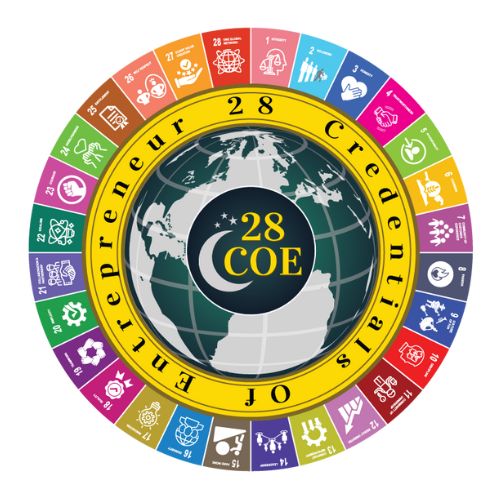How Core Values Help in Conflict Resolution
By Dr. Bilal Ahmad Bhat, Thought Leader, Founder of BAB Group of Companies, Global Chamber Builder & Author of 28COE Core Values-Edition-1
The Essence of Values Amidst Conflict
Conflict is an unavoidable part of personal relationships, professional settings, and organizational dynamics. From boardroom disagreements to political disputes, conflicts can derail progress, disrupt peace, and create long-lasting rifts—if not handled constructively. At the heart of effective conflict resolution lies one foundational element: Core Values.
As someone who has worked with thousands of individuals, professionals, businesses, and startups across the globe—and even contested in the 2024 Assembly Election from 32-Pampore Constituency—I have come to understand that core values are not just philosophical ideas. They are practical tools that guide how we navigate life’s toughest challenges, including conflicts.
Understanding Conflict in Today’s World
Conflicts arise from:
- Miscommunication
- Differing priorities
- Clashing personalities
- Cultural and social misunderstandings
- Competing interests or objectives
In an increasingly diverse and fast-paced global economy, organizations and communities are more vulnerable to conflicts than ever before. Without a consistent value system in place, these conflicts can spiral into toxic environments, employee burnout, public disputes, or fractured relationships.
What Are Core Values?
Core values are the deeply held beliefs that drive behavior, decision-making, and culture. Whether for individuals, companies, or countries, values such as integrity, respect, empathy, honesty, and accountability serve as moral compasses.
In my book 28COE Core Values – Edition 1, I shared 28 universal values that not only promote leadership but also help build harmonious relationships. These values have been adopted by organizations, brands, and individuals across the globe, with many proudly featuring them on their websites and walls.
How Core Values Help in Conflict Resolution
1. Promote Open Communication
Values like honesty and transparency create a culture where people feel safe to express disagreements without fear of retribution. This openness helps address issues at an early stage.
2. Foster Mutual Respect
When respect is a core value, individuals acknowledge the opinions, cultures, and experiences of others. This dramatically reduces instances of personal attacks or discrimination, enabling conflicts to be addressed constructively.
3. Guide Ethical Decision-Making
During heated disputes, values like integrity, fairness, and justice guide decisions based on what is right—not what is popular. This ensures long-term harmony over short-term appeasement.
4. Provide a Common Ground
Core values act as shared reference points that all parties can rally around. Whether you’re leading a startup or a government body, reminding all parties of the shared values can redirect the conversation from blame to solution.
5. Strengthen Leadership Response
Leaders who are grounded in values like accountability, patience, and humility are more likely to approach conflict with empathy and logic, rather than ego and bias.
6. Encourage Responsibility and Ownership
Values such as responsibility and commitment ensure that parties involved in a conflict take ownership of their role. This shortens the blame game and accelerates resolution.
7. Enable Long-Term Trust Building
Every resolved conflict based on core values contributes to stronger trust among stakeholders. This is true in families, startups, corporations, or public institutions.
Case Example: Core Values in Political & Organizational Conflict
During my journey as a global entrepreneur and my political candidacy in 2024 at 32-Pampore Constituency, I have observed how communities torn by mistrust and misalignment could be brought together through value-driven dialogues.
One particular instance involved a dispute between youth groups and administrative heads. By introducing dialogues centered on values like unity, courage, and compassion, we transformed the energy from confrontation to collaboration.
This real-world experience underscores that core values aren’t abstract concepts—they’re actionable strategies.
Why 28COE Core Values Matter in Conflict Resolution
The 28COE Core Values stand apart because they offer a complete, structured, and adaptable framework to manage both internal and external conflicts. Some of the key values include:
- Empathy – understanding another’s emotions and perspective
- Gratitude – focusing on appreciation rather than fault
- Unity – valuing community over division
- Courage – speaking the truth even in tough times
- Forgiveness – letting go to move forward
These values, practiced individually or organizationally, create environments where conflicts are not feared but transformed into opportunities for growth and alignment.
Thousands of professionals, businesses, and even public offices now proudly practice the 28COE values. These aren’t just words on a page—they are pillars of conflict resolution and leadership transformation.
Final Thoughts by Dr. Bilal Ahmad Bhat
In a world where divisions seem sharper and tensions rise faster, core values are the only true anchors we can rely on. Whether you’re a startup founder, corporate leader, public servant, or a student, defining your values is not a luxury—it’s a necessity.
The reason why so many global chambers, entrepreneurs, and policy leaders resonate with the 28COE Core Values is simple: they provide clarity, unity, and strength in the face of uncertainty and disagreement.
Conflict is inevitable. How you resolve it—that’s a choice rooted in your values.
For a deeper dive into each of the 28 Core Values, visit www.28coecorevalues.com and begin your journey toward value-based transformation and conflict resolution.
By Dr. Bilal Ahmad Bhat
Thought Leader | Founder, BAB Group of Companies | Author of 28COE Core Values – Edition 1

